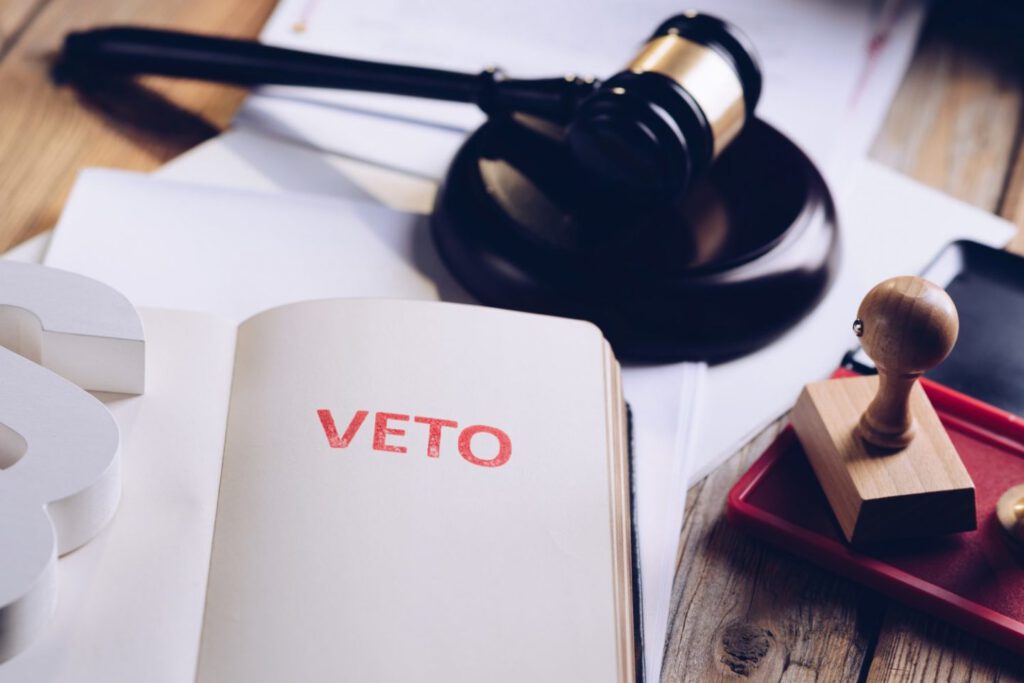Michigan advocates seek constitutional remedy for governor’s veto on education choice bills
(reimaginED) – Two vetoed bills that would empower education-minded families for the first time in Michigan’s history are getting another chance to become law, thanks to a provision in the state…

(reimaginED) – Two vetoed bills that would empower education-minded families for the first time in Michigan’s history are getting another chance to become law, thanks to a provision in the state constitution.
Michigan’s Republican-controlled legislature approved the bills last year that would have established an education savings account program to offer choice to families who meet income eligibility guidelines or who have children in foster care or with special needs.
Gov. Gretchen Whitmer vetoed both bills, which were opposed by the state’s teachers’ union.
Education choice advocacy groups, however, have refused to give up. Let MI Kids Learn and Great Lakes Education Project political action committee are using a provision in Michigan’s constitution that allows petitions that garner 340,000 signatures to be put up for a legislative vote.
Measures that are approved by voters bypass the governor and become law.
“The Let MI Kids Learn proposal would put parents back in charge. It’d create new Student Opportunity Scholarships so kids can get the extra tutoring, transportation, Internet access and other resources they need to succeed inside and outside the classroom,” wrote Beth DeShone, executive director for the Great Lakes Education Project.
As of last week, the groups have gathered more than 70,000 signatures since the campaign kicked off in February. The deadline for submitting signatures to the state is June 1.
The first Let MI Kids Learn petition would change Michigan tax law to allow donors to give money to “scholarship-granting organizations,” or newly created nonprofits that would provide parents and families funding for students who match certain criteria.
The funding could be used for tuition or fees to attend a private school, tutoring, or extracurricular activities and other educational resources. Public school students who are eligible based on income could get up to $500, while students with disabilities could receive up to $1,100.
The second petition allows donors to claim tax breaks on their contributions to the scholarship program. Residents or corporations making donations would be eligible for income tax credits equal to their donations. Let MI Kids Learn set a $500 million maximum in tax credits that could be claimed.
Despite being the home state of former U.S. Education Secretary Betsy DeVos, who has strongly supported choice for decades, Michigan has never had a robust choice program. Most of the choice that does exist is in the form of district magnets, specialized programs, and inter-district programs.
Charter schools have fared better, especially in the state’s urban areas, said Ben DeGrow, director of education for the Mackinac Center for Public Policy, a Michigan free-market think tank.
(For a deep dive into the history of education choice in Michigan, click here.)
For Michigan, the state constitution has been a double-edged sword for education choice. The same document that allows for a possible gubernatorial workaround also includes language that has been used to oppose choice.
A 1970 Blaine amendment in Michigan’s constitution prohibits any “payment, credit, tax benefit exemption or deduction, tuition voucher, subsidy grant or loan of public money” from being provided “directly or indirectly to support the attendance of any student at any nonpublic school.”
An attempt to change the constitution to let the state grant scholarships to Michigan students in struggling district schools failed in 2000 with only 30% in favor. The latest choice initiative is different in that it relies not on state funds but on tax-credit donations from private donors.
In 2017, choice supporters saw a possible opening to challenge the Blaine amendment when Congress approved the Tax Cuts and Jobs Act. Before the new law, families could spend their 529 savings plans – tax-advantaged investment vehicles designed to encourage savings for future higher education expenses – only on college expenses.
Now, they can use the savings plan to pay up to $10,000 in tuition expenses at K-12 public, private or parochial schools. Supporters say the change puts Michigan’s constitution at odds with federal law.
In response to the new federal law, the Mackinac Center Legal Foundation sued the state in September on behalf of five families who say they want to provide the best education possible for their children by using the federally administered accounts to send their children to private schools. Hile v. Michigan is pending in the U.S. District Court of West Michigan.
The lawsuit argues, among other things, that the original 1970 amendment was motivated by religious bigotry. According to the complaint, the amendment was adopted “in response to a modest proposal to appropriate $150 per student in funding for private schools, which were then more than 90% religious, spurred on by an antireligious ballot sponsor (the ‘Council Against Parochiaid’) and by anti-religious, especially anti-Catholic, advertisements, campaign literature, and letters to the editor.”
DeGrow said recent court victories related to education choice such as Espinoza v. Montana, along with a more conservative U.S. Supreme Court, gave education choice supporters hope for a similar victory in Michigan.
If that happens, choice opponents would have more difficulty challenging laws that establish education choice programs.
This article originally appeared on reimaginED.



